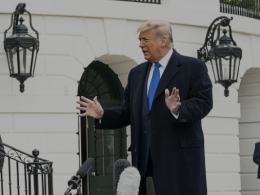The UK government is set to remove green levies on thousands of businesses in a move aimed at reducing energy costs and revitalising the manufacturing sector, particularly in Labour heartlands. The reform is part of a wider 10-year industrial strategy which seeks to stimulate growth in eight key sectors, including clean energy, advanced manufacturing, and life sciences.
More than 7,000 firms are expected to benefit from the removal of levies such as the Renewables Obligation, which currently supports legacy renewable electricity projects. A parallel initiative will see the discount on grid connection fees for energy-intensive industries increase from 60% to 90%, a measure expected to support around 500 businesses in sectors such as steel, aluminium, ceramics, and glass.
Despite the announcement, industry insiders estimate the annual savings for the steel sector will be around £15 million—significant, but not transformative. The reforms are designed to address long-standing concerns about the UK’s high industrial electricity prices, which are among the steepest in the developed world.
The strategy also promises faster grid connections for major job-creating investment projects, with a new system expected to be operational by the end of the year.
Prime Minister Keir Starmer described the plan as “a turning point for Britain’s economy,” signalling a shift away from “short-termism and sticking plasters of the past.” He said it would provide the long-term certainty businesses need to invest and innovate.
Chancellor Rachel Reeves added that the strategy would complement the government’s upcoming spending review, highlighting investments in infrastructure, clean energy, and skills development. “It will boost our economy and create jobs that put more money in people’s pockets,” she said.
The government emphasised that the reforms would not increase household bills or require direct taxpayer funding, as the changes would be supported through broader energy system reforms. However, UK electricity prices are still expected to remain above those in Germany and France due to the continued influence of wholesale gas prices in the British energy mix.
Central to the strategy is a proposed link between the UK and EU emissions trading schemes, which could further support industrial competitiveness. Negotiations on this integration, announced at a joint summit in May, are still ongoing.
Industry leaders welcomed the announcement. The Confederation of British Industry’s CEO, Rain Newton-Smith, said the strategy “provides a bedrock for growth” through competitive energy pricing and innovation support. Stephen Phipson, head of Make UK, called it a “giant and much-needed step forward,” noting it directly addresses structural challenges including the skills gap, high energy costs, and limited capital access.
“The message this sends is clear: Britain is back in business,” Phipson added.
















